My Nobel Pursuit: Monterrey, Oslo, Stockholm
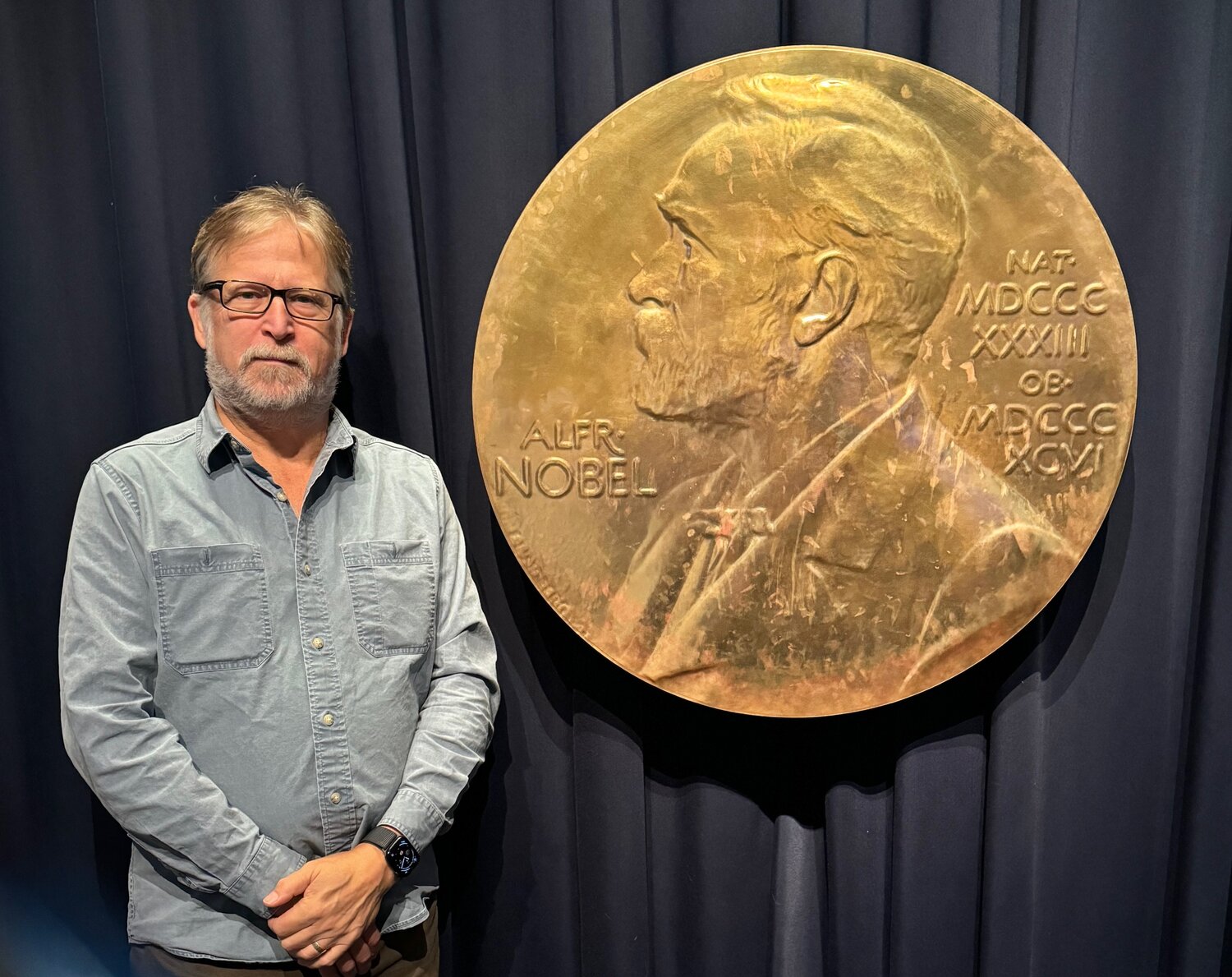
Today the 2024 Nobel Peace Prize was announced – winner is Japanese grassroots organization Nihon Hidankyo, representing thousands of survivors of the 1945 nuclear bombs dropped by the US on Japan, honoured “for efforts to achieve a world free of nuclear weapons.” So it is a good day to write about my own Nobel journey (not to win one, just to encounter those who have). Then i will return in my next post to the cities I am visiting, the people I have met, and the lessons I am learning.
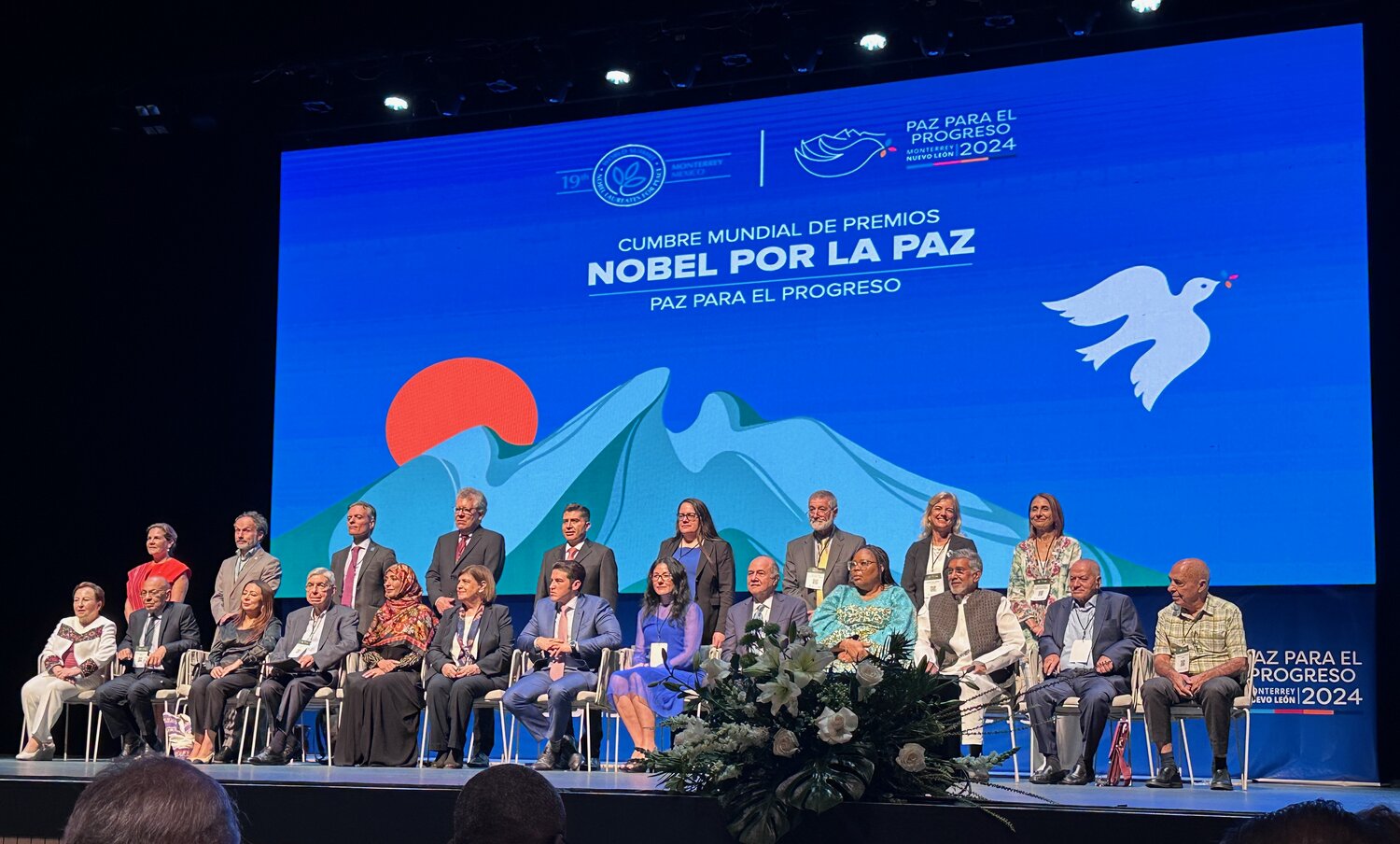
Eleven Nobel Peace Laureates and representatives of 9 winning organizations.
I was invited to Monterrey, Mexico in September to speak at the19th World Summit of Nobel Laureates for Peace. Every few years there is a summit that moves around the world (https://www.nobelpeacesummit.com/), though Covid put them on hiatus for a while. In Monterrey, there were 11 Nobel Laureates, such as Óscar Arias Sánchez, Shirin Ebadi, Kailash Satyarthi, Rigoberta Menchú, and Lech Walesa, alongside representatives from 9 Nobel Prize winning organizations like the American Friends Service Committee (AFSC), the Intergovernmental Panel on Climate Change (IPCC), and the International Campaign to Abolish Nuclear Weapons (ICAN). There was a student day before the Summit and then the three day summit. I was invited to participate in the student day and speak on a panel during the Summit called “Peace Education: Curriculum Integration” about how to incorporate peace courses into the university curricula.
The conference was fascinating - over 4000 people, the majority students, and professionals and academics working in peace related fields. Some fascinating speeches and presentations - most notably former President of Costa Rica Óscar Arias Sánchez, one of those people whose gravitas demands immediate respect (reminded me in that aspect of Elie Wiesel). He gave a powerful speech of the need for each citizen to be part of the resolution of the conflicts raging right now.
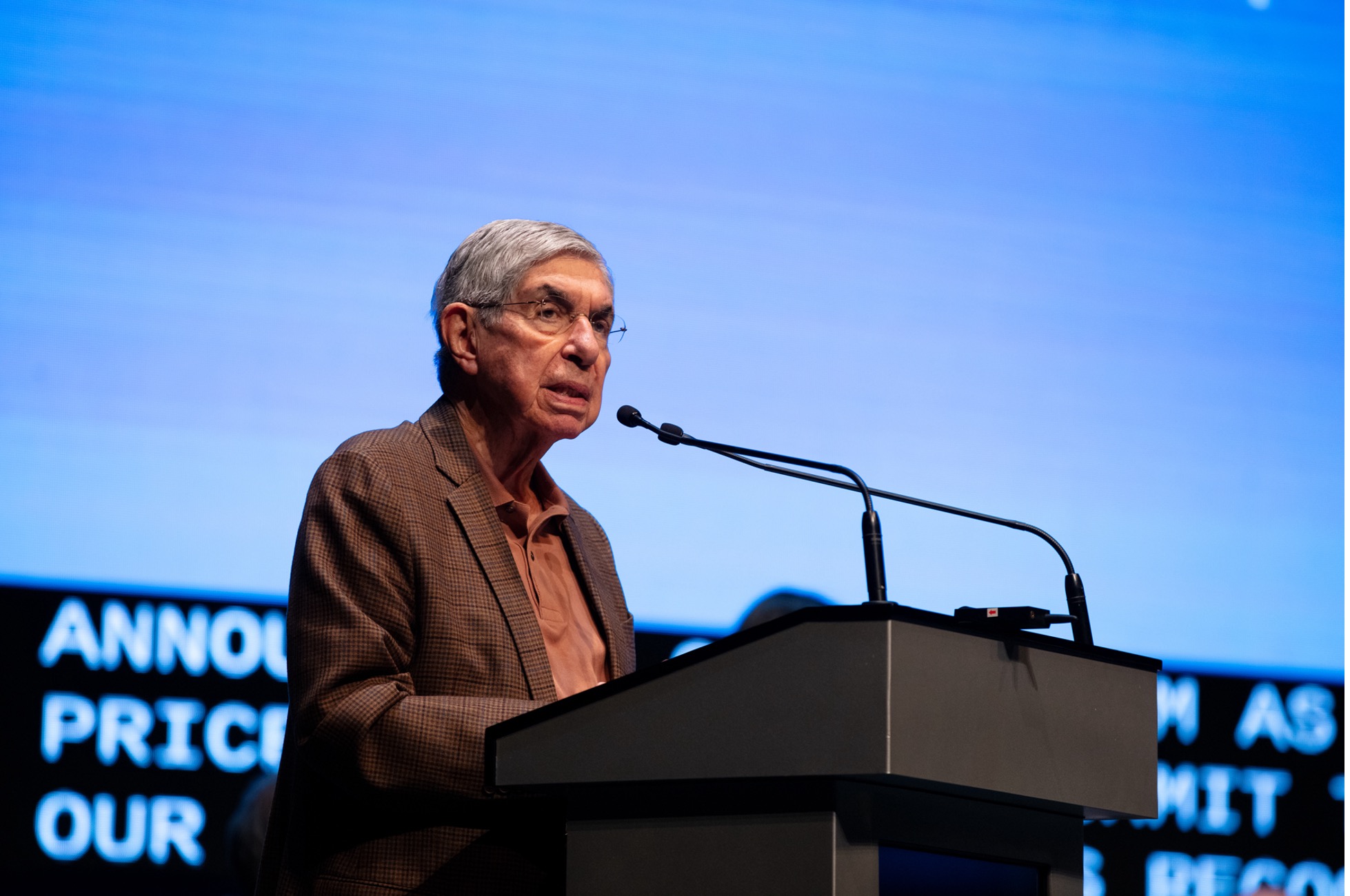
Nobel Peace Laureate and former President of Costa Rica Óscar Arias Sánchez speaking at the Summit
One interesting aside, a notable observation especially for me as a Jew: the situation in the Middle East was mentioned frequently. Calls of “Free Palestine” rang out here and there from the largely international student audience. A number of panelists mentioned the suffering of Gaza, and one talk, by Jeffrey Sachs, economist and Director of the Center for Sustainable Development at Columbia University, was a virtual screed against Israel. But not from a single Nobel Laureate. Every single one, when they brought up the Middle East, tried to articulate some sense of balance, even when their main point was the suffering of the Palestinians. It was deeply refreshing to hear balance, not to have people forget the Simchat Torah massacre of Oct 7, 2023, when expressing sympathy, or even outrage, for the terrible loss of life, property, and community that is the reality in Gaza ever since. It becomes clear why these are Nobel Prize Laureates.
My panel was a great experience but ended up having little to do with the topic. I was on the panel with four Deans from Mexican universities (and I was advertised as a Dean, so thanks for the promotion, Nobel Summit. How do I tell Emory?), and with Shirin Ebadi, the Nobel Laureate from Iran who had been one of Iran’s first female judges, was fired after Khomeini’s revolution in 1979, opened a law firm defending victims (especially women) of the regime, and was eventually jailed. A heroic and impressive person. Unfortunately, she knows little about integrating peace education into the curriculum, so after a few comments from the panel the rest of the session was her recounting her (very harrowing) experience in Iran, her passionate defense of justice, and a call to the audience of young people to get involved and fight for justice everywhere. But the panel ending up not being at all about peace education. It was still worth it, to hear a story of true courage in the face of a repressive regime.
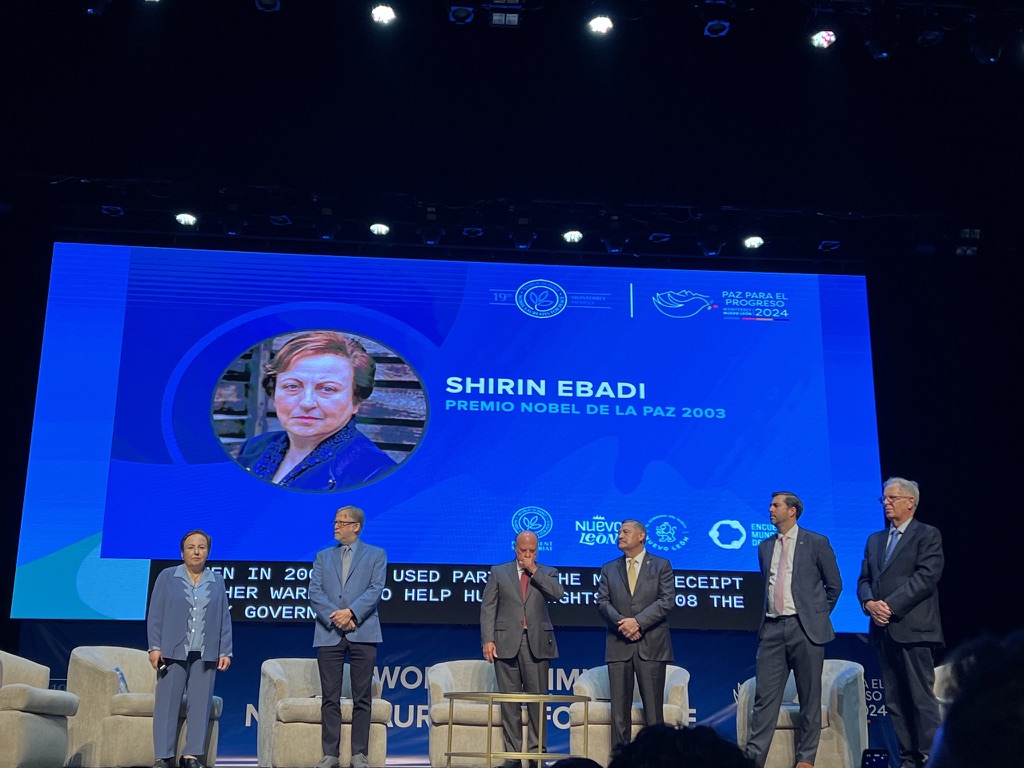
On a panel with a true hero, Nobel Peace Laureate Shirin Ebadi
A few weeks later I was in Oslo, where the peace prize is actually determined. Alfred Nobel’s will - a very impressive and far-sighted fellow, the more you know about him - stated that the prizes for physics and chemistry are to be awarded by the Swedish Academy of Sciences (he was Swedish); those for physiological or medical achievements by the Karolinska Institute in Stockholm; and literature by the Swedish Academy. But the Nobel Peace Prize he stated should be chosen by a committee selected by the Norwegian Parliament. No one knows why he split it that way.
Nobel’s will also stated that the prize not just be given to Scandinavians but to the world community, irrespective of nationality; and that it be “prizes to those who, during the preceding year, have conferred the greatest benefit to humankind.” Noble guy, that Nobel.
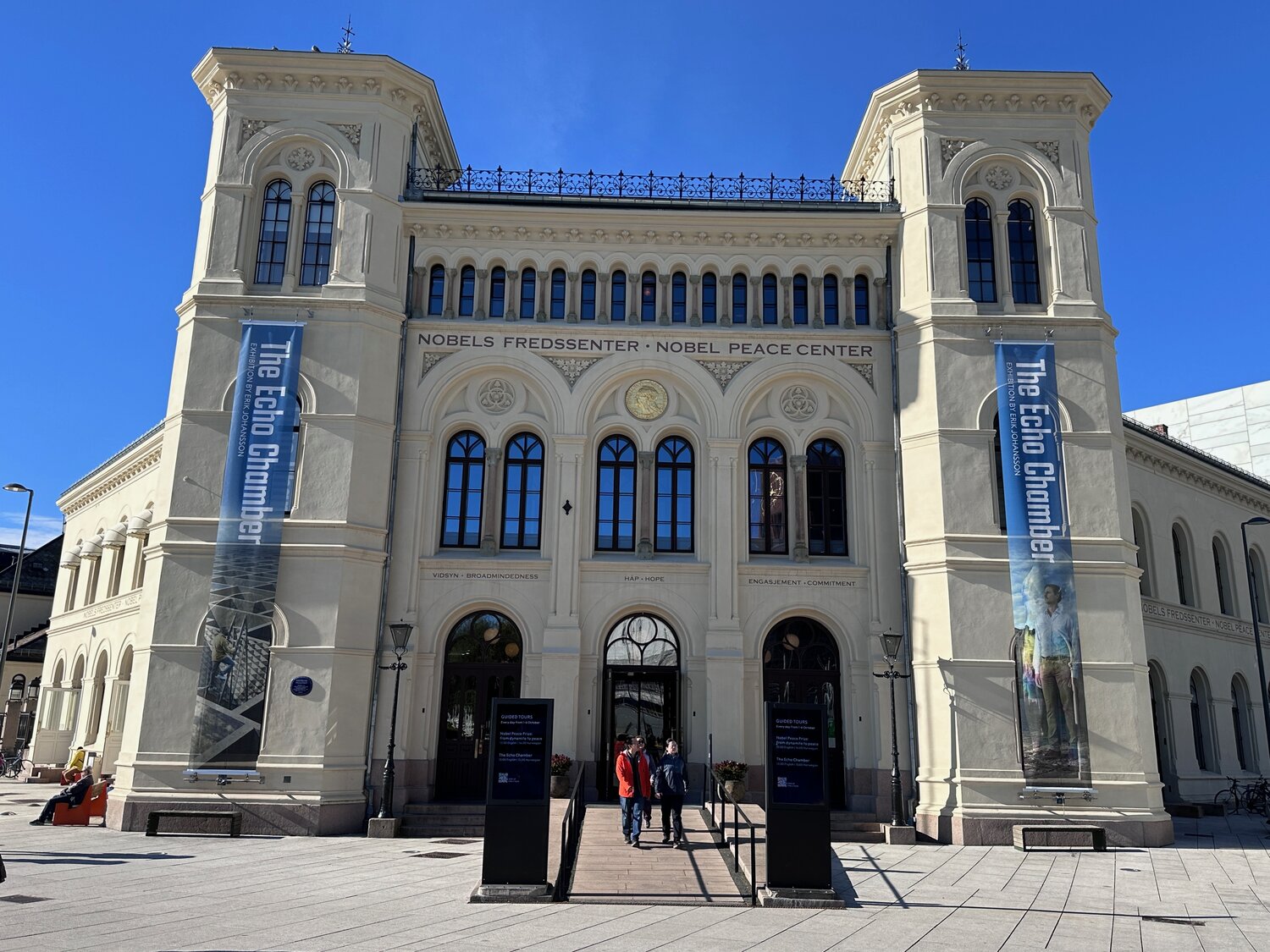
Nobel Peace Center in Oslo, with “broadmindedness, hope, commitment” under the windows.
The Nobel Peace Center is in Oslo. I was not able to tour it due to time constraints, but I did go in the bookstore. Time for a mini-rant. In the Nobel Peace Center bookstore - a building with “broadmindedness, hope, commitment” emblazoned on the front - was a display on the situation in the Middle East, consisting of six books about how Israel oppresses the Palestinians. Not a single book on Israel or its history, never mind an Israeli perspective on the war. A major contrast with the Nobel Peace Laureates themselves.
Here is the point: you do not solve conflicts through imbalance. That does not mean the two sides are equal, that some grievances aren’t greater than others, that profound criticism is not due to one or both sides, that we cannot condemn unequivocally certain actions. But conflicts are not solved through ignoring the grievances of either side. They are not solved by demonizing one side (or the other) and thinking that will stop things. The experts I have spoken with who do this kind of work emphasize the need to listen, deeply and sympathetically, to both sides, in the service of the first most important goal: to stop the killing. Historical grievances can be reconciled and dealt with after the killing ends. Apparently the Nobel Peace Center does not get this.
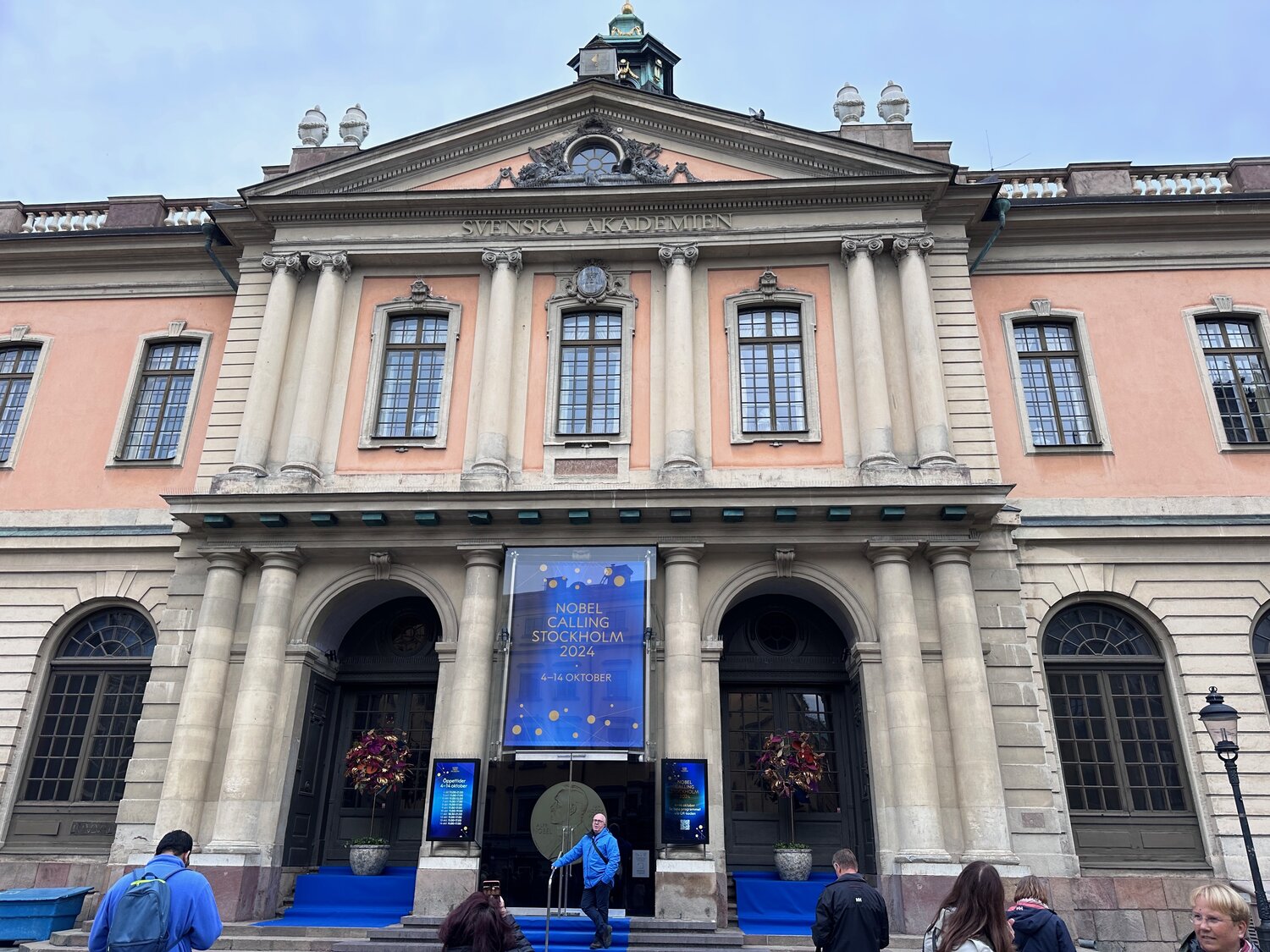
Nobel Prize Museum in Stockholm
After Oslo, off to Stockholm, where I did tour the Nobel Prize Museum, and was there for the announcement of the winner of the Nobel Prize for Physics.
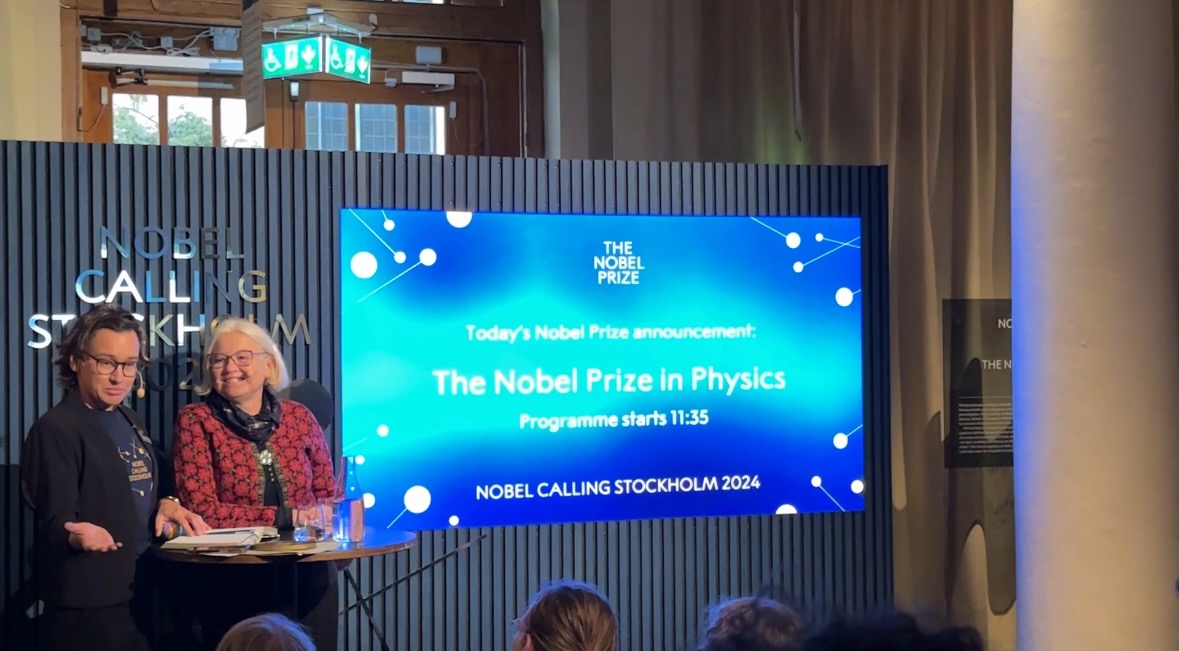
They have displays of objects associated with many of the winners - not just peace - a cathode ray tube, models of molecules, the shawl Malala wore when she addressed the UN, The dress Nadia Murad made for a wedding before ISIS destroyed her village and captured her as a sex slave, a prosthetic leg from the International Campaign to Ban Landmines, a model of the toy car that Eric Kandel (who I have published an article with) got on his ninth birthday in Vienna. Small information sheets on every Nobel winner (there have been 973 individuals and 27 organizations) circulate on a track above your heads (see one of my favorites below, who I had dinner with when he spoke at my father’s synagogue).
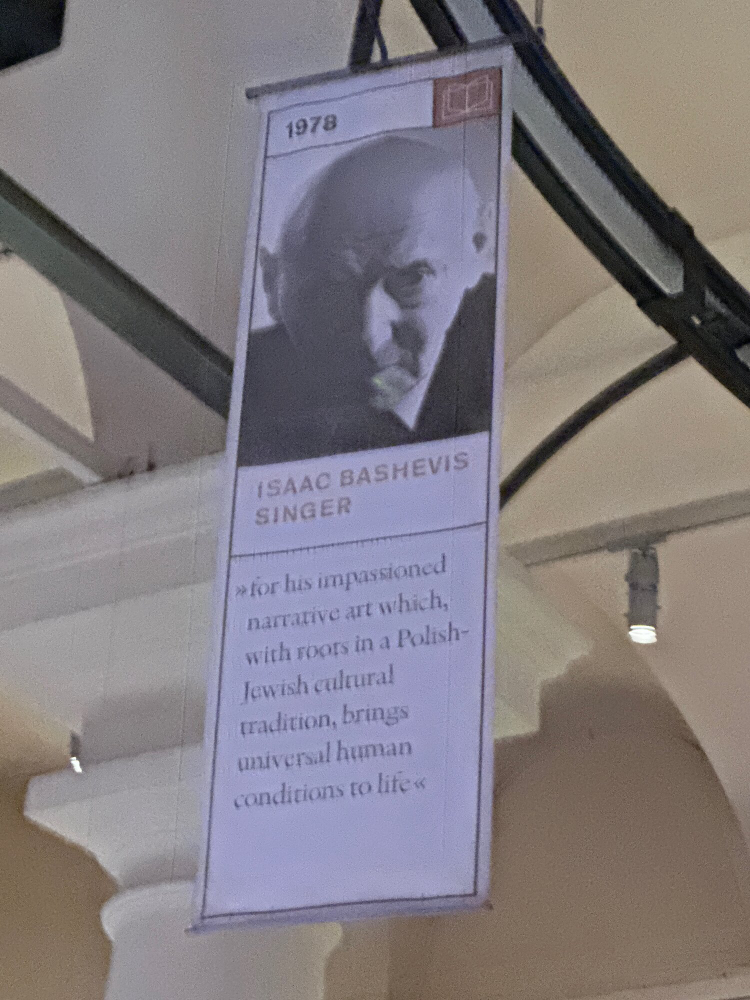
Isaac Bashevis Singer, 1978 Nobel for Laureate for Literature
Sure the Nobels are elitist in some ways, quirky (some winners do not stand the test of time – though the majority do), can be discriminatory, are flawed. But I think what they symbolize is important, recognition for work that changes the world for the better, in the sciences, in the humanities, and in the pursuit of peace.




